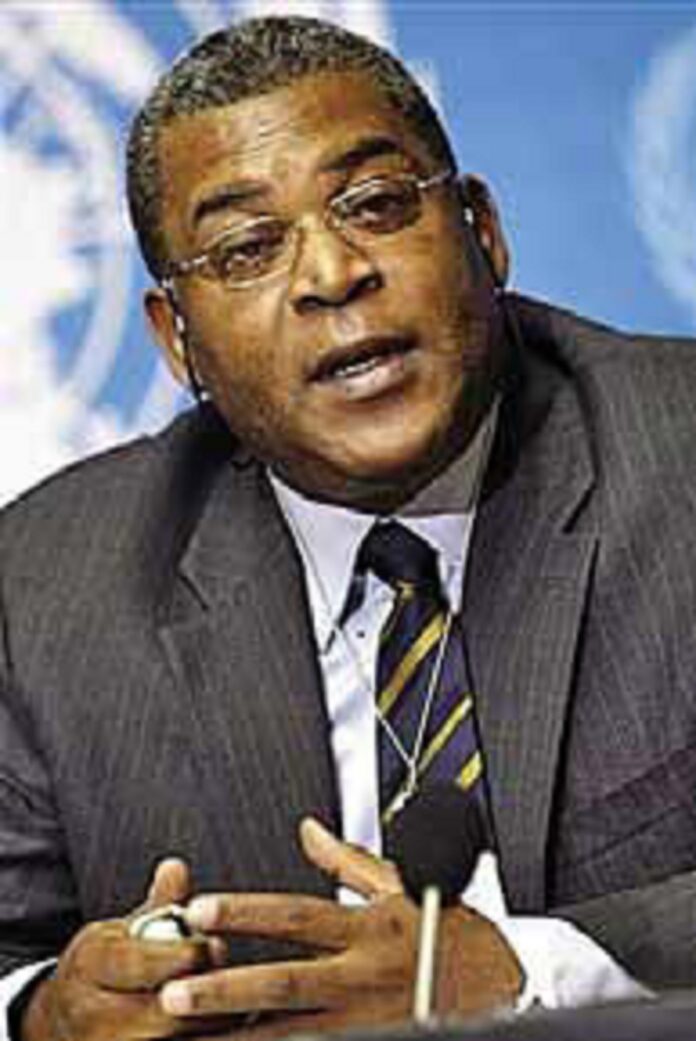In record time, both Parliamentary houses have ratified Prime Minister Jean Max Bellerive, who President René Préval nominated the day after Haiti’s Senate fired his predecessor Michèle Duvivier Pierre-Louis on Oct. 30 (see Haïti Liberté, Vol. 3 No. 16, 11/4/2009).
The Senate approved him on Nov. 6 and the House of Deputies on Nov. 7. In the last step of the ratification process, on Monday, November 9, Bellerive presented his “general policy declaration” to the Senate. It was approved with 22 votes and 4 abstentions from the 29 senators who are overwhelmingly from Préval’s Lespwa (Hope) coalition.
Bellerive has kept 11 ministers from Pierre-Louis’ government, in which he was Planning Minister, and recruited seven new members. Among the most noteworthy appointments is that of Paul Denis, the former senator and former head of the Struggling People’s Party, as Justice Minister. Denis headed a so called Commission of Administrative Inquiries (CEA) convened by the 2004-2006 coup government of de facto Prime Minister Gérard Latortue. In Nov. 2005, Denis’ commission issued an incoherent and thoroughly discredited report alleging that former Haitian President Jean-Bertrand Aristide, overthrown by the Feb. 29, 2004 coup, embezzled millions of dollars from Haitian state coffers.
Denis’ infamous enmity towards Aristide and his Lavalas Family party (FL) does not bode well for the hundreds of Lavalas political prisoners, arrested during the coup, who still languish in Haitian jails. Denis is also a close personal friend and advisor of President Préval.
Perhaps to offset the inevitable outcry over Denis’ appointment, Préval and Bellerive also appointed former Lavalas deputy Yves Cristallin as Social Affairs Minister. Despite Cristallin’s Lavalas credentials, he has received severe criticism and condemnation from many FL members and leaders in recent months for his close relations with the Préval government. He has acted as an advisor to Préval and sat on one of his commissions. Another vaguely Lavalas and surprise appointment was that of Marie-Michèle Rey as Foreign Minister.
In 1991 and 1994-95, Rey was President Aristide’s Finance Minister (under first Prime Minister Préval, then PM Smarck Michel). Despite that association, she was a strong defender of the neoliberal reforms that the Clinton administration tried unsuccessfully to push on Aristide. Another neoliberal proponent from Haiti’s bourgeoisie, Jocelyne Colimon Féthière, was appointed Trade and Industry Minister. She was the former head of Promobank, an investment bank founded by Texas-based Haitian businessman, Dumas Siméus, who made an unsuccessful Presidential bid in 2005. Meanwhile, former Episcopalian priest and long-time Haitian Edwin Paraison, was named to the post of Minister of Haitians Overseas.
Paraison, who has strong human rights credentials, has a primarily public-relations job of representing the government in Haiti’s diaspora, mostly in the U.S. and Canada. Ronald Baudin was appointed Economy and Finance Minister. He previously headed a Préval-formed commission (CMO-HOPE) to sell in the U.S. and Haiti the government’s HOPE II initiative, which seeks to attract more assembly-sector sweat-shop jobs to Haiti. Marie-Laurence Josselin Lassègue, who was Minister of Women’s Conditions under Pierre- Louis, was reassigned as Culture and Communications Minister. Marjorie Michel took her place.
Bellerive, 51, left Haiti with his parents in 1960 during the Duvalier dictatorship to live in Europe. He went to school in France, Switzerland and Belgium, returning to Haiti after the 1986 fall of Jean-Claude “Baby Doc” Duvalier. He was one of the key drafters of the Poverty Reduction Strategy Paper (DSNCRP), a neo-liberal blueprint drawn up for Haiti under the aegis of the International Monetary Fund.
Bellerive, a job-hopping government technocrat, is no boat-rocker. He has held government posts under both administrations of both President Préval and President Aristide, as well as under Latortue’s de facto government. He proposes nothing different from Pierre-Louis’ neoliberal policies. To raise more state revenues he said he would carry on “the fight against fraud and tax evasion, strengthen customs offices,” and continue the installation of a computer system for customs outposts in Haiti’s provinces, where contraband pours in.
Lack of money is always the biggest obstacle faced by any Haitian government. “What worries me,” Bellerive told the Parliamentarians, “are the limitations and precariousness of resources.”










